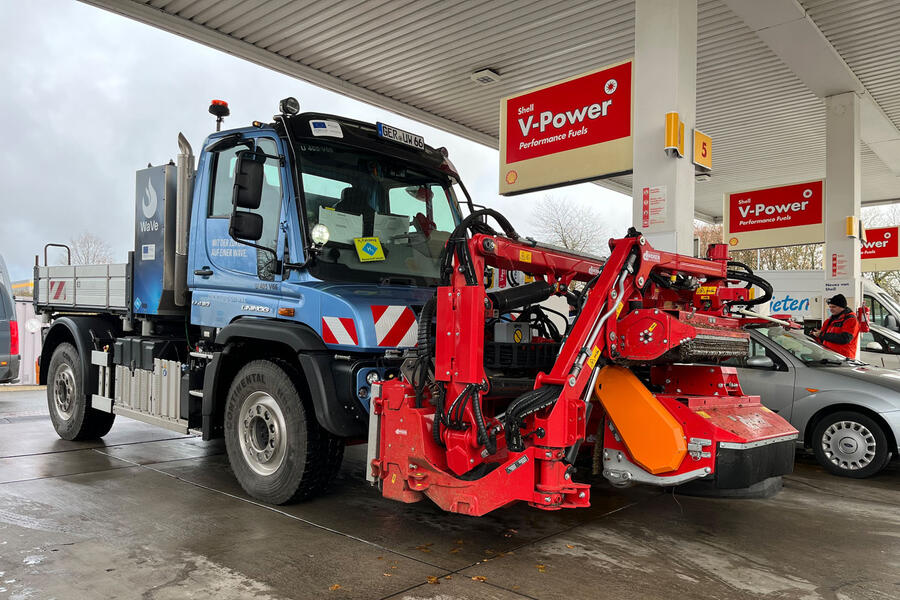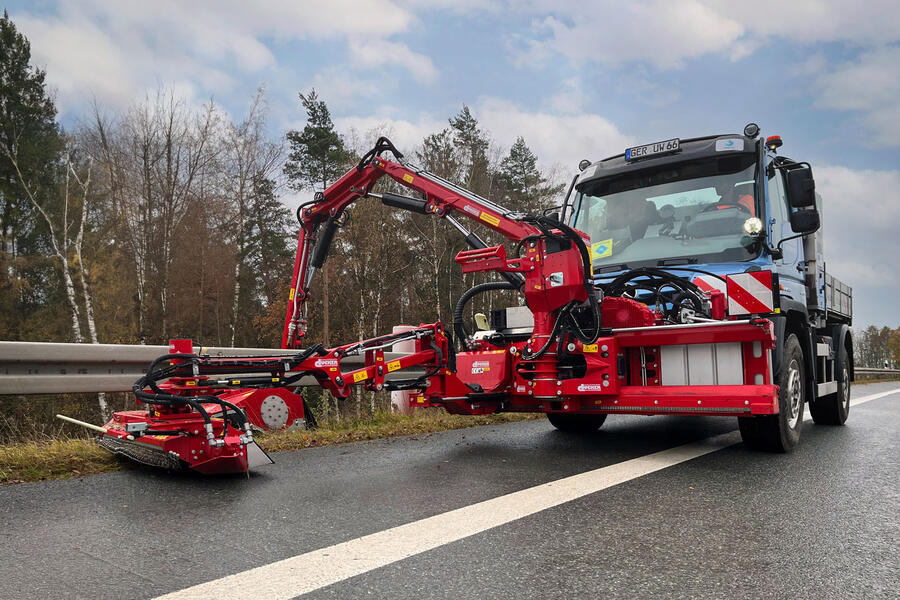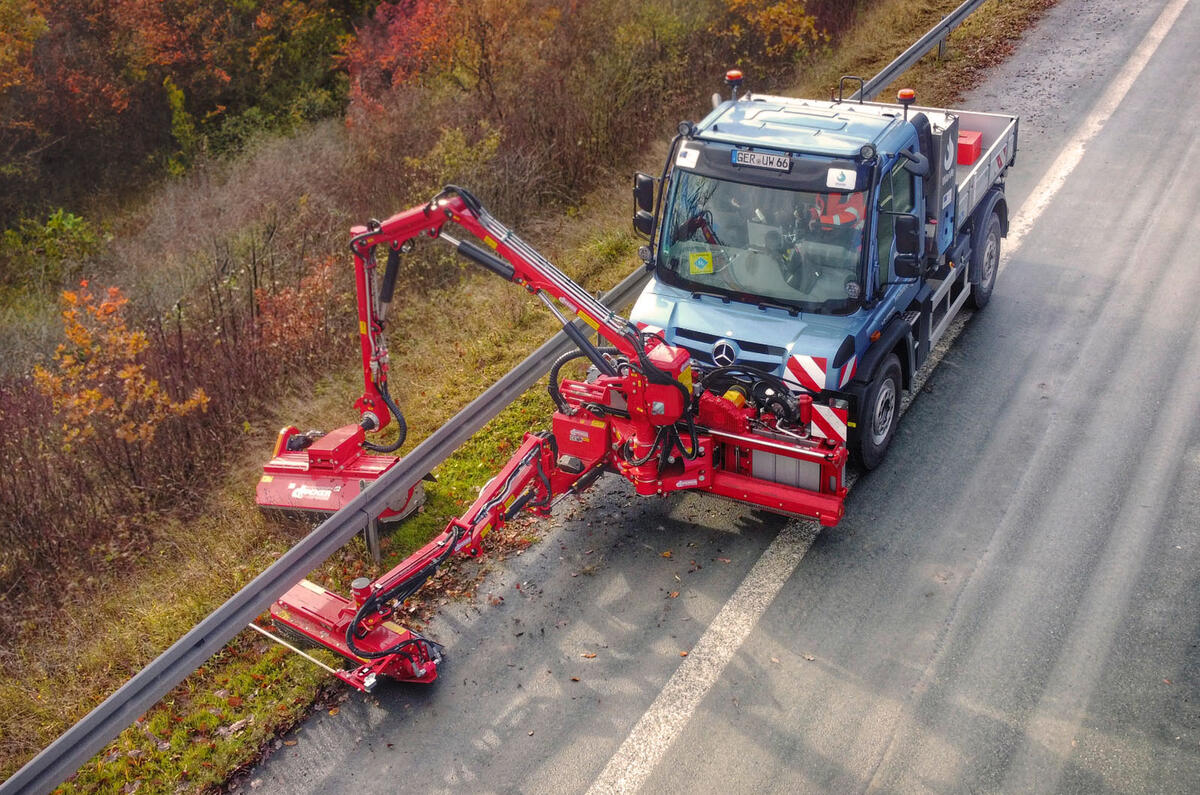Mercedes-Benz is testing a Unimog equipped with a hydrogen combustion engine, in a bid to eventually offer low-emission trucks with performance on a par with today’s diesels.
The German giant is using a Unimog U430, which packs a 7.7-litre straight six that ordinarily puts out 295bhp and 885lb ft.
These figures dip slightly when running on hydrogen to 286bhp and 738lb ft. However, Mercedes notes that the engine is “noticeably quieter” when running on the gas.
It's fed by four tanks that hold around 14kg of hydrogen at a pressure of 700bar (10,152psi).
The next step of development is to increase the volume of hydrogen aboard to allow the Unimog to complete a full working day mowing a motorway verge without refilling.
Mercedes hasn't shared any efficiency figures for the current test vehicle.

Mercedes describes the hydrogen combustion engine as a “complimentary” solution to decarbonisation for “special applications”, alongside battery electrification and the use of hydrogen fuel cells.
The advantage of hydrogen combustion is that it can have a significantly lower environmental impact than using fossil fuels, provided that the hydrogen is sourced by electrolysing water with renewable electricity (which emits no carbon).
Combusting hydrogen with the air – which mostly comprises nitrogen and oxygen – doesn't produce CO2 emissions. However, it does produce NOx, which is linked to respiratory problems such as asthma.
As such, hydrogen combustion is touted as more of a viable solution for commercial vehicles, which generally work outside cities and towns.








Join the debate
Add your comment
Because Ethanol E100 would be too easy or obvious?